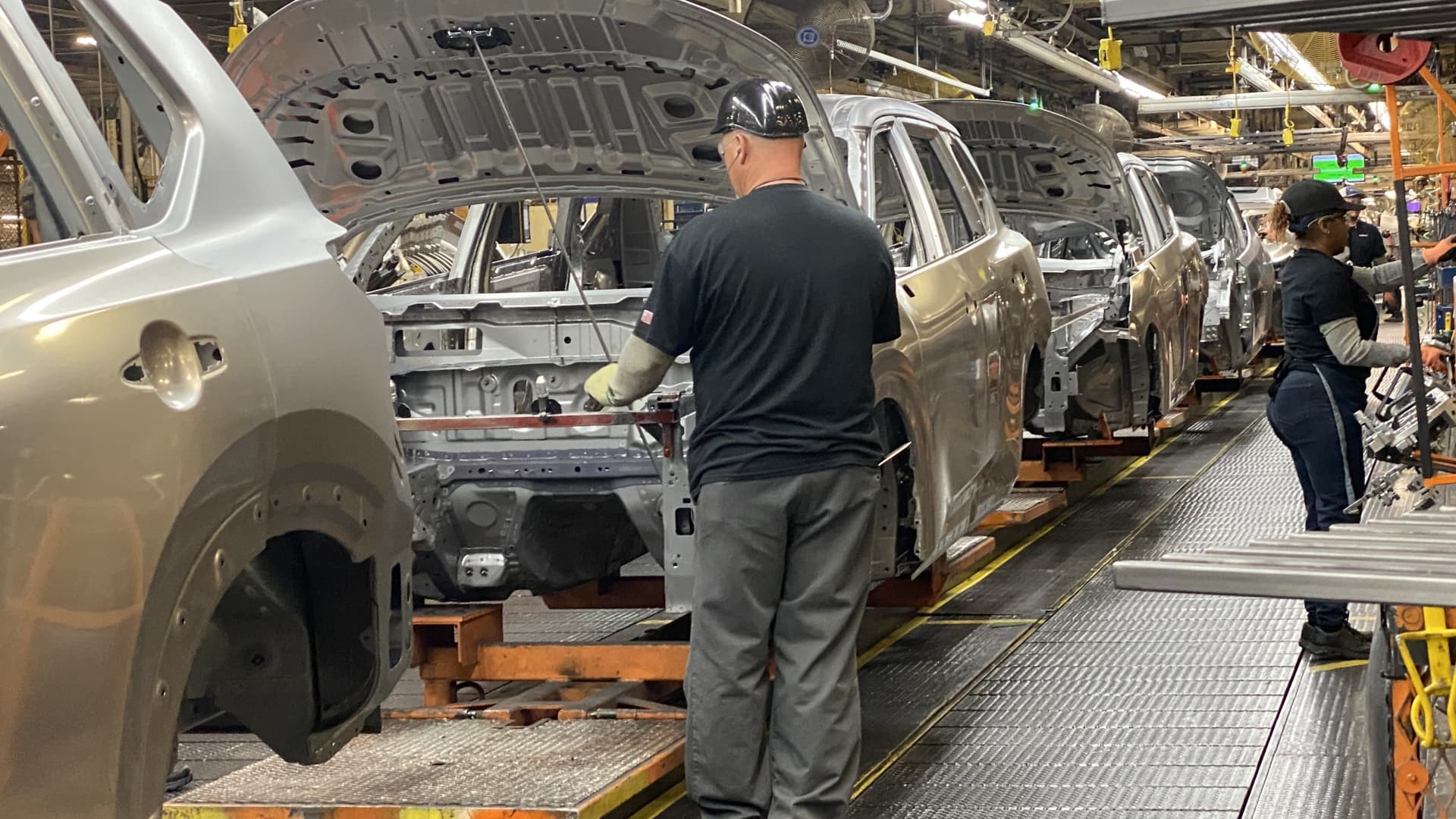DETROIT — President Donald Trump’s 25% tariffs on Mexico and Canada could reduce vehicle production in North America by roughly a third as soon as next week, according to an analysis by S&P Global Mobility. This would equate to approximately 20,000 units per day. The production impact and potential layoffs would worsen if the tariffs, implemented on Tuesday, remain unchanged. Stephanie Brinley, associate director at S&P Global Mobility, described the situation as a significant shift during a webinar with the Automotive Press Association. On average, 25 automakers produce 63,900 light-duty passenger vehicles daily in North America, with 65% assembled in the U.S., 27% in Mexico, and 8% in Canada. Tariffs are taxes on imported goods, and companies importing these goods pay them. Experts worry that automakers may pass on increased costs to consumers, raising vehicle prices and reducing demand. The American Automotive Policy Council, representing Ford Motor, General Motors, and Stellantis, argues that vehicles meeting USMCA requirements should be exempt from the tariff increase. Former Missouri Gov. Matt Blunt, president of AAPC, stated that these tariffs could undermine American automakers’ competitiveness. The Alliance for Automotive Innovation warned that all automakers will face increased costs, leading to higher vehicle prices. CEO John Bozzella noted that some models could see price increases of up to 25%. Nissan Motor expressed concern over the negative impact of sustained tariffs and hopes for a productive resolution. Supporters argue that tariffs help address trade disparities and may serve as leverage to renegotiate USMCA. GM CEO Mary Barra mentioned that GM believes it can mitigate short-term impacts of additional costs without deploying capital. The total impact on North American vehicle production remains uncertain due to the complex supply chain dynamics. Brinley highlighted the fluidity of the situation, noting the industry’s agility but also the prevailing uncertainty. — news from CNBC
